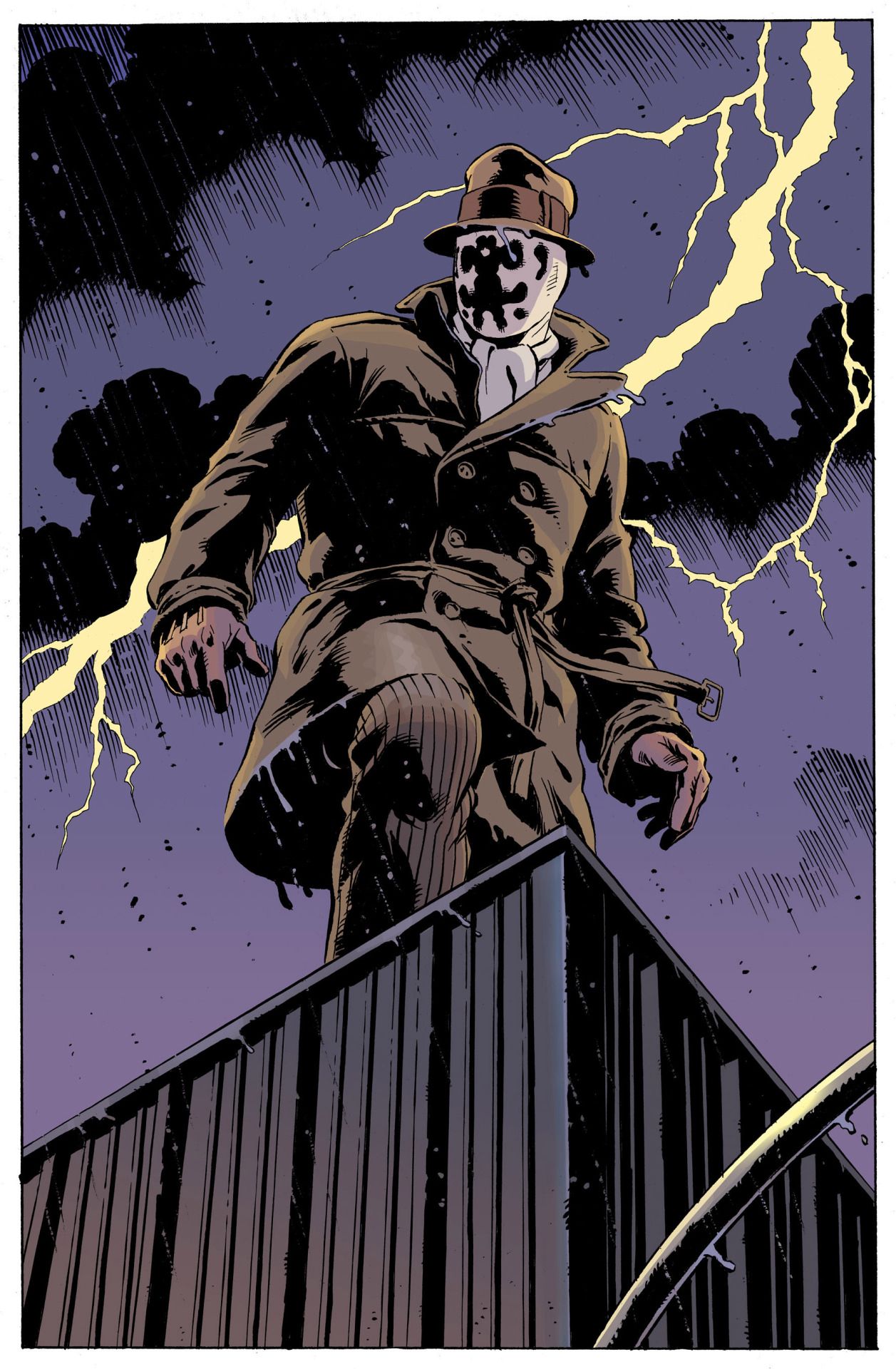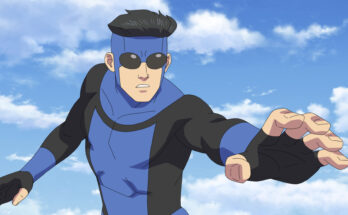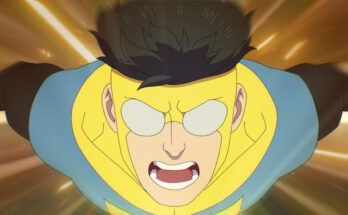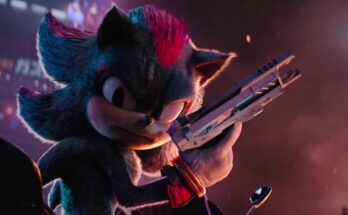Want to hear more from the actors and creators of your favorite shows and films? Subscribe to The Cinema Spot on YouTube for all of our upcoming interviews!
Managing editor & film and television critic with a Bachelor's of Arts in English Literature with a Writing Minor from the University of Guam. Currently in graduate school completing a Master's in English Literature.
While his New Gods screenplay with filmmaker Ava DuVernay has yet to have an update announcement, comic book writer Tom King discusses the original Watchmen comic book series and his upcoming Rorschach comic book in his DC FanDome panel.
King and Watchmen series creator Damon Lindelof have been huge fans of each other. King goes on to say:
It’s tough to talk about Watchmen ’cause it’s like talking about the Earth and mentioning the Sun. You know? It’s like comics are built from it … I do remember the first time I read it. I was way too young. I’m sure my mother had no idea I was buying it. I was 10 or 11 years old. I read it in one sitting on some Friday night. I read all the back material like a super nerd.
At such a young age, the writer spoke about how he already understood the realism and tenebrous tone and tougher environment of its universe than our own. He then read the comic yearly to the point that he had become a devout fan and reader of its story.
Comic artist Jorge Fornés was around 13 years old when he read the comic, growing up together, so to speak. He discusses his way of reading Watchmen:
I think that’s important. Reading the book with a certain time between issues made you give your brain the right time to process what you have read. Maybe perhaps it’s a too dense book to read it completely at once. That gives you the idea [of] the greatness of the book.
The reason why he says the book has been “growing with” him is that he’s discovered new layers, new sense, more meaning, etc. behind its story. Fornés praises the original comic’s artists Dave Gibbons and John Higgins’s iconic work on the comic’s artwork. He discusses not trying to adopt their way, “either conceptually or graphically,” of designing his own work.
Lindelof refers to the original comic series as “the Old Testament” from his fan perspective. His question when creating and spearheading his HBO series was: “Why and why now?”
King initially turned down writing Rorschach, and he likens this to being the next person to perform after Richard Pryor had been on stage: “It just sets you up for failure. You don’t want to be sort of compared to something that you can’t ever, ever beat.” However, he changed his mind after viewing the pilot episode of the HBO series. He adds:
You got to be the next thing, not a copy of the [previous] thing … Obviously right now, America is in a very bizarre place, and it changes every single day, and we’re going through just incredible tumultuous insanity, which is grinding us and testing us. To talk about that in a comic book and in a literary way, I think [Watchmen comic creator] Alan Moore has given us the notes … to talk about our current moment.
He discusses its political and contemporary stance on current events and issues faced in the world today.
Lindelof talks about how the writers for the HBO series had different angles and perspectives of the source material. Adding to King’s Richard Pryor analogy, the HBO series is the Dave Chappelle in that it is “inspired by the but the next iteration of.”
Fornés and King were drawn together for their mutual love for comics, noir, and Watchmen. The comic artist reads the script and created layouts for their comic to be sent to the writer. King also takes canonical the role-playing Watchmen video game contributed by Dave Gibbons, and takes some inspiration from Lindelof’s series.
King says Rorschach will take place after the television series run and mentions the election of another political figure as President. (The writer’s political background is brought up into the discussion. He was a case officer in the Central Intelligence Agency for several years of its 20s.) In his comic, a President is assassinated and the ink blot-masked vigilante detective has a role in this situation. Flashbacks providing details as to what happened will be present.
Lindelof and Fornés discuss the noir — in terms of mood, tone, and visual style — look of the comic. The artist says that Moore and Gibbons created “a world that is timeless.” The Lost creator says of his HBO series:
Our idea was that even though they would be advanced in some ways, there was a technophobia that emerged in the wake of the squid drop, where in the same way that [people] look at anti-vaxxers today, that there would be people who said, “Oh, it was the beginnings of Wi-Fi that allowed this rip in the space-time continuum.” … We always love the idea of unintended consequences of people who are trying to create utopias. That’s the oldest science-fiction story there is.
He goes to talk about drawing “a straight line tonally between the old and the new.”
He jumps onto King and Fornés’s upcoming comic and how the character is broken down — in the literal, the thematic, and figurative sense. King gets into the philosophy of Russian-American writer Ayn Rand and how “there is good and there is bad, and there’s nothing in between.” He also cites DC Comics’ character The Question as well as Steve Ditko’s character Mr. A, both of whom Rorschach parodizes. King says that his perception of the Watchmen character has changed over time, beginning to see himself in the darknesses of the character, such as a Rorschach does. Lindelof says:
It’s seemingly a contradiction, but it’s more kind of wrestling with the appeal of these characters who see the world kind of in a very black-and-white because we crave that purity but also the reckoning of, “Shouldn’t we worry about these people?”
The Watchmen series creator asks the Rorschach duo about their stance on vigilantism. King brings up German-born American political thinker Hannah Arendt for his new comic’s response to Alan Moore. He says, “The idea is it makes it a different moral universe and asking different moral questions, or at least the same questions, but turning the ball on the side so you can see it from a different angle.” Fornés shares Moore and Gibbons’ foreign perception of American politics, then praises King’s writing on Rorschach, which has many layers that will be head-blowing.
King and Fornés confirm that legacy characters from the past and/or present will appear in the comic. In terms of the science-fiction aspect, Fornés wants to keep the story rather grounded, although King says the stakes will rise as the plot progresses. The writer says Steve Ditko would have hated the “moral uncertainty” of his (King’s) work, although would adore the tribute of Rorschach‘s artwork.
What do you think? Will you be reading this comic? Let us know! For more comic book, superhero, Damon Lindelof, Tom King, and Watchmen-related news and reviews follow The Cinema Spot on Twitter (@TheCinemaSpot) and Instagram (@thecinemaspot_).
Managing editor & film and television critic with a Bachelor's of Arts in English Literature with a Writing Minor from the University of Guam. Currently in graduate school completing a Master's in English Literature.






16 Comments on “DC FanDome: ‘The Expansion of DC’s Watchmen Universe’ Panel Coverage”